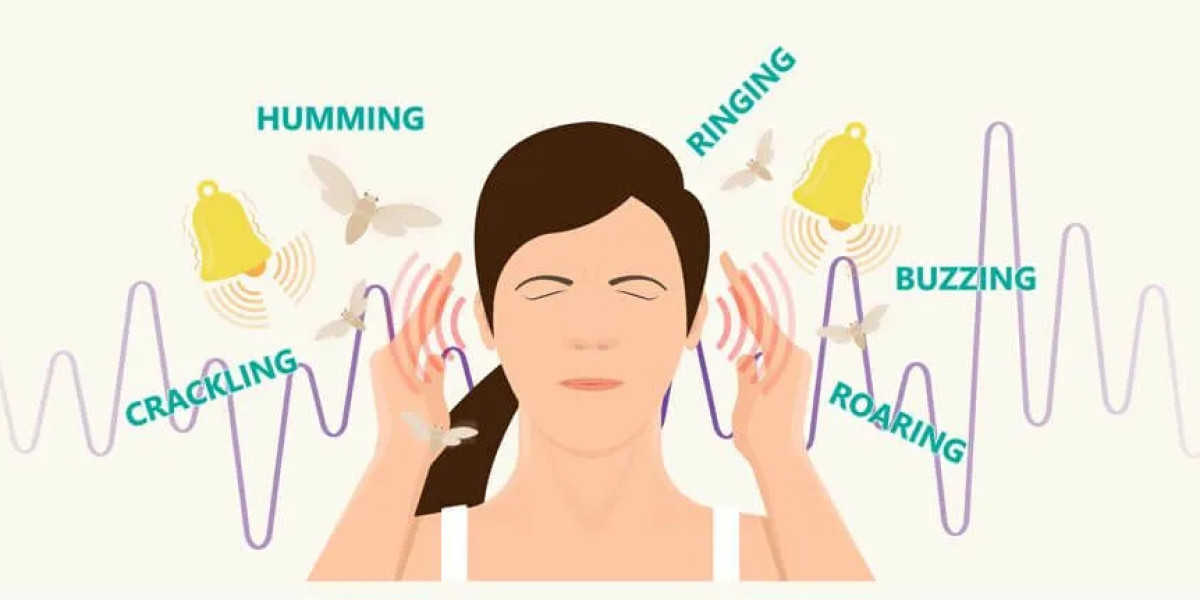Tinnitus, often described as a persistent ringing, buzzing, or hissing sound in the ears, affects millions of people worldwide. While it is not a condition in itself, tinnitus is a symptom of an underlying issue, such as hearing loss, ear infections, or exposure to loud noises. Although there is no universal cure, there are several effective tinnitus treatment that can significantly reduce its impact on daily life. Here, we explore expert-recommended approaches to managing and alleviating tinnitus.
1. Sound Therapy
One of the most popular tinnitus treatments is sound therapy. This approach involves using external sounds to mask or distract from the internal ringing. White noise machines, nature sound recordings, and even specially designed tinnitus sound therapy apps can provide relief. By creating a more soothing auditory environment, sound therapy helps individuals focus less on the tinnitus noise, especially in quiet settings where the ringing might be more noticeable.
2. Hearing Aids
For individuals with tinnitus caused by hearing loss, hearing aids can be a game-changer. These devices amplify external sounds, making the tinnitus less prominent. Many modern hearing aids also come with built-in tinnitus masking features, which can emit soft sounds to counteract the ringing. Consulting an audiologist is essential to determine the best hearing aid for your needs.
3. Cognitive Behavioral Therapy (CBT)
Cognitive Behavioral Therapy is a psychological approach that helps patients manage their emotional responses to tinnitus. While CBT doesn’t eliminate the ringing, it can reduce the distress and anxiety associated with the condition. By reframing negative thought patterns and learning coping mechanisms, individuals often report an improved quality of life.
4. Tinnitus Retraining Therapy (TRT)
TRT is a specialized tinnitus treatment that combines sound therapy with counseling. The goal is to retrain the brain to perceive tinnitus as a neutral sound, reducing its emotional impact over time. TRT requires commitment and is typically guided by trained professionals over several months. However, it has shown significant success in helping individuals habituate to tinnitus.
5. Lifestyle Modifications
Simple lifestyle changes can play a crucial role in managing tinnitus. Experts recommend reducing caffeine and alcohol intake, as these substances can exacerbate symptoms. Stress management techniques such as yoga, meditation, and deep breathing exercises can also help, as stress is a common trigger for tinnitus flare-ups. Maintaining a healthy diet rich in antioxidants and anti-inflammatory foods may support overall ear health.
6. Medical Interventions
In some cases, underlying medical conditions like earwax buildup, temporomandibular joint (TMJ) disorders, or vascular issues can cause tinnitus. Addressing these conditions through medical treatment can alleviate symptoms. Additionally, certain medications, such as antidepressants or antianxiety drugs, may be prescribed to help manage severe tinnitus.
7. Alternative Therapies
While more research is needed, some individuals find relief through alternative treatments like acupuncture, chiropractic adjustments, or herbal supplements. Supplements containing ingredients like ginkgo biloba, zinc, or magnesium are sometimes recommended, but it’s essential to consult a healthcare provider before trying these options.
Conclusion
Tinnitus may be a persistent and frustrating condition, but effective treatments are available to help manage its impact. From sound therapy and hearing aids to cognitive and lifestyle strategies, there is no one-size-fits-all solution. Consulting an audiologist or ENT specialist can help you identify the best tinnitus treatment plan tailored to your unique needs. With patience and the right approach, many individuals find significant relief and regain control over their lives.








